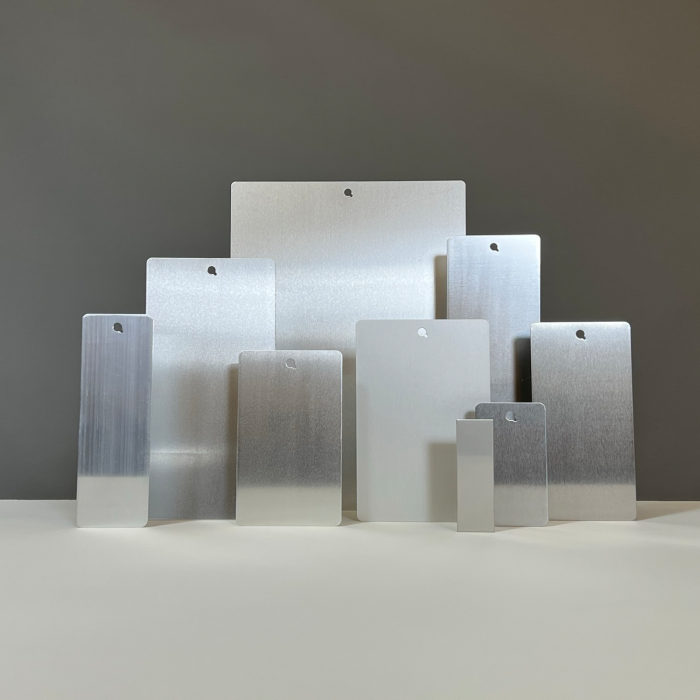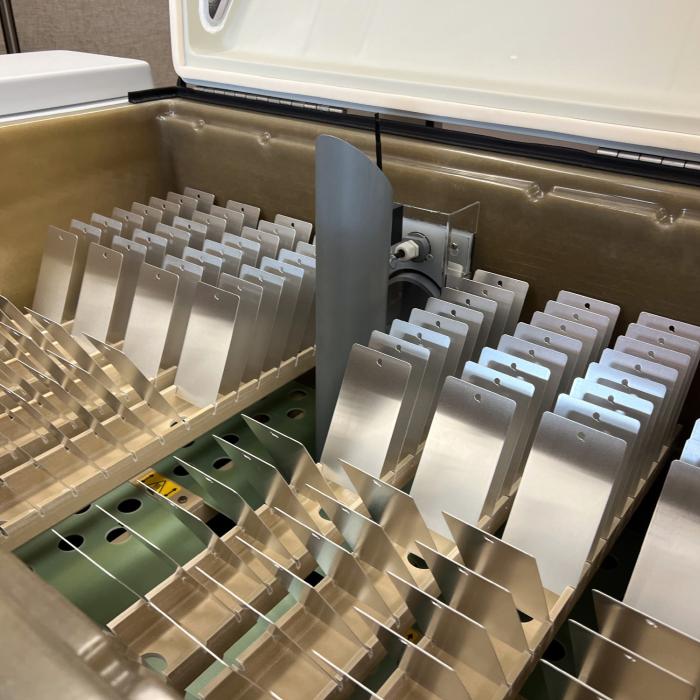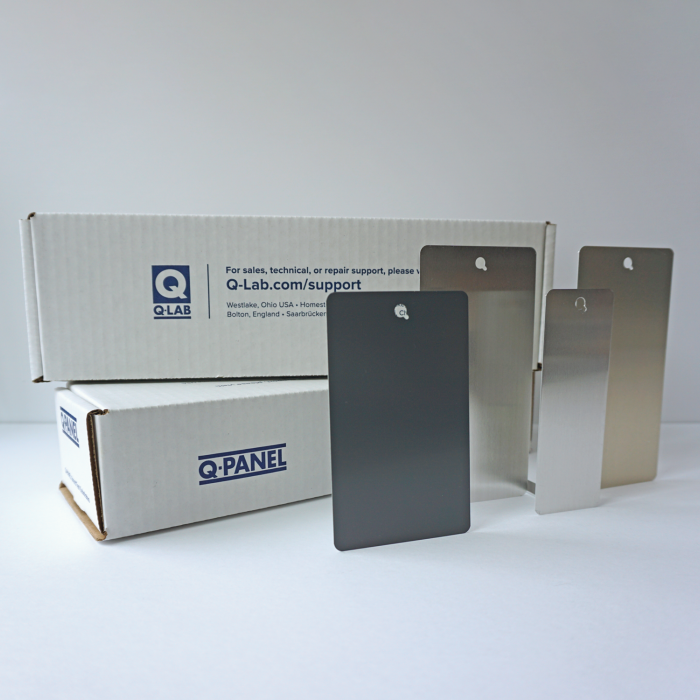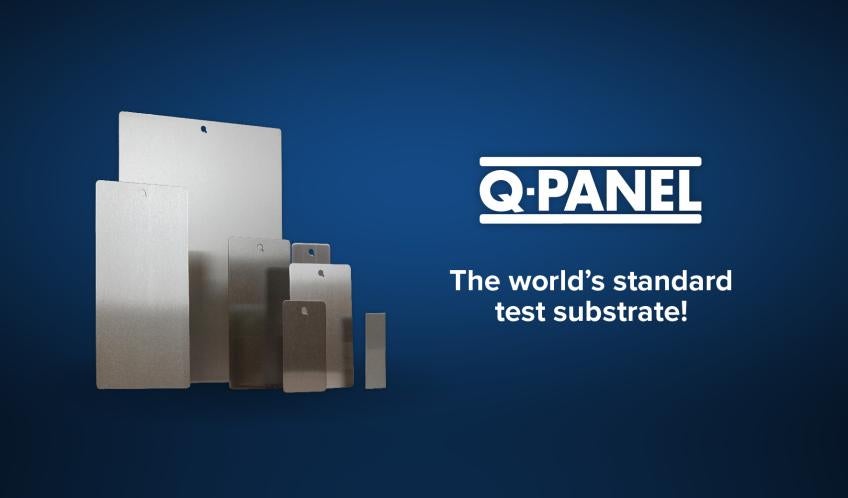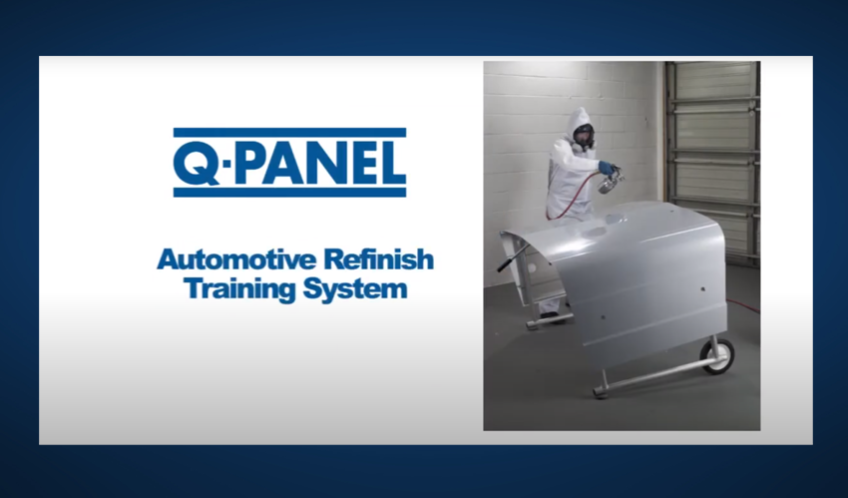Q-PANEL Aluminum Substrates
Q-PANEL Aluminum test substrates from Q-Lab minimize metal variability as a source of bias in critical tests. Made from widely-available aluminum alloys, they are clean, consistent, convenient and economical. A wide range of panel sizes and types are available for immediate shipment from stock. Panels are stored completely clean and, in most cases, can be used right out of the box.
Minimizing Variability in Coatings Testing
For coatings tests to be reliable and reproducible, they must be performed on a substrate that is consistent from test to test. Unfortunately, ordinary commercial aluminum displays wide variations in the surface properties that affect the bonding of coatings. This is due to variations in surface texture, cleanliness, and chemistry. The result is that ordinary aluminum is unsuitable for many coatings tests. This is a similar problem to that of providing standardized steel surfaces.
Q-PANEL aluminum test substrates from Q-Lab address this issue by minimizing metal variability as a source of bias in critical paint, coating, and adhesion tests. For over 50 years, Q-PANEL aluminum test substrates have been recognized as the world standard for a consistent and uniform test surface for paints, plating, adhesives, sealants, and other coatings.
Thousands of labs around the world use millions of our aluminum test panels every year for color development, weathering exposures, salt spray and corrosion testing, physical properties testing, and quality control. A wide range of panel sizes and types are available for immediate shipment from stock - see Q-PANEL Aluminum Specification Bulletin for a complete list.
Clean
The Q-PANEL production process thoroughly cleans panels and removes any oil from the surface. Special handling assures that all panels are completely clean when they are packaged. Aluminum panels are packed in plastic bags in quantities of 20 to 50 panels (depending on type and thickness).
Consistent
Three factors assure Q-PANEL substrates are consistent, high-quality, and low-cost:
- Volume metal purchasing from selected mills
- Automated production on a high-speed line
- Rigorous inspection at several processing stages
Convenient
Panels are supplied pre-cleaned, with a 6 mm (¼”) Q-shaped hole (it’s our trademark and your assurance of quality). For safety and ease of handling, the panels have rounded corners and deburred edges. Our inventory of over a million paint test panels means that 95% of our orders are shipped from stock. In most cases, panels can be used right out of the box.
Economical
Because of Q-Lab’s high-volume production, Q-PANEL aluminum substrates cost less than you might expect for a standardized surface. Purchasing clean, safe, standardized panels reduces the time lab personnel must spend cleaning and handling panels.
Use our Q-PANEL Selector guide to browse our extensive list of standard panels and request information on a custom panel, or contact us to get a quote.
Sample Pack Kit
For customers who may not know exactly what panel they need, or who just want to have a sample to touch and feel, we offer inexpensive steel, aluminum, and lap shear sample packs. Each pack will contain five of our most popular bare, treated, and specialty steel and aluminum panels.
General Purpose Aluminum Q-PANEL Substrates
These types of Q-PANEL substrates are usually the best choice for most tests for paints and coatings. They are our most widely-used and most economical types of panels, and are stocked in the greatest variety of sizes and finishes. See our Q‑PANEL Aluminum Specification Bulletin and Q-PANEL Brochure for more details, or browse our selection of General Purpose aluminum panels.
Bare Aluminum
Type A standard aluminum panels are made from alloy 3003 H14, and are 0.64 mm (0.025 in) thick. This is the most widely-used general purpose aluminum alloy from coil stock.
Chromated Aluminum
Chromated aluminum panels are treated with a chromium conversion coating to improve paint adhesion and resistance to underfilm corrosion. Most aluminum is given such a pretreatment prior to painting.
- Type AL panels are the same 3003 H14 aluminum alloy and 0.64 mm (0.025 in) thickness as Type A, treated with a hexavalent chromium coating. This offers the best paint adhesion performance, but is restricted by certain EU regulations.
- Type AT panels are the same 3003 H14 aluminum alloy and 0.64 mm (0.025 in) thickness as Type A, treated with an environmentally-friendly trivalent chromium pretreatment that may offer less adhesion than Type AL.
Anodized Aluminum
Anodized aluminum panels are treated with an anodization process, which improves resistance to corrosion. Most aluminum exposed to exterior weathering is given such a durable treatment.
- Type AN panels are the same 3003 H14 aluminum alloy and 0.64 mm (0.025 in) thickness as Type A, with an anodized surface treatment
Specialty Aluminum Q-PANEL Substrates
Q-Lab produces a wide variety of panels to meet as many testing needs as possible. Special use Q-PANEL substrates are designed to meet a particular test standard, or for a particular limited application. They will often be more expensive than similarly-sized General Purpose panels. The available sizes and finishes of these are limited and they may not be available from stock. Several of these Q-PANEL substrates (AQ, AQT, AEX) meet the specific requirements for Qualicoat substrates. See our Q-PANEL Aluminum Specification Bulletin and Q-PANEL Brochure for more details, or browse our selection of Specialty aluminum panels.
Bare Aluminum
These panels have bare surfaces like the general purpose Type A panels, but use different aluminum alloys and sizes to meet specific test requirements.
- Type AQ panels are made from alloy 5005 H24, are 0.81 mm (0.032 in) thick, and are offered in Europe to meet Qualicoat requirements.
Type ARX, ASX, and AGX panels have square corners and no Q-shaped hanging hole (-N). Type ARX and ASX are also available with a removable polyethylene film on one side (-P). All three are are 0.81 mm (0.032 in) thick:
- Type ARX panels are made from alloy 2024 T3
- Type ASX panels are made from alloy 6061 T6
- Type AGX panels are made from alloy 7075 T6
Chromated Aluminum
- Type AQT panels are made from alloy 5005 H24 and are 0.81 mm (0.032 in) thick. They use the same environmentally-friendly trivalent chromium pretreatment as Type AT, just with a different metal base. Type AQT panels are offered in Europe to meet Qualicoat requirements
Extruded Aluminum
- Type AEX panels are extruded from alloy 6063 T5/T6, are 2 mm (0.078 in) thick, and are offered in Europe to meet Qualicoat requirements.
Adhesive Panels
Aluminum adhesive panels are made from a high-strength aluminum alloy with large thickness. This allows them to resist the stress of adhesive testing, which tests how strong a particular adhesive is in terms of gluing two surfaces together. This is not to be confused with “adhesion” testing, which evaluates how well a paint film sticks to the underlying substrate. Aluminum adhesive panels do not have the Q-shaped hole.
- Type AR panels are bare aluminum panels made from alloy 2024 T3 and are 1.6 mm (0.063 in) thick.
- Type AD are the same as Type AR, but are “Alclad” - laminated with a thin coat of pure aluminum for improved corrosion resistance.
Automotive Styling
These large panels have compound curves and a horizontal crease to simulate car doors. Coatings applied to styling panels reflect light in a manner similar to a coating on an actual automobile side panel. Panels are available in a light gray, coil coated, polyurethane finish. They are an economical way for the coating designer to show how the coating looks on a large complex surface.
- Type SPC automotive styling panels are made from coated series 3000 aluminum
Curved Panels
Any Q-PANEL Aluminum substrate between 76-152 mm (3-6 in) width can be ordered through a custom order.
More Q-PANEL Resources At Your Fingertips
Document Library
Browse Q-Lab’s extensive library of Q-PANEL testing literature and technical content.
Education
Check out blogs, case studies, articles, and webinars to build your knowledge of weathering testing.
Standards
Review setup and performance information on key international and OEM test standards from ASTM, ISO, SAE, JIS, GB, and more.
